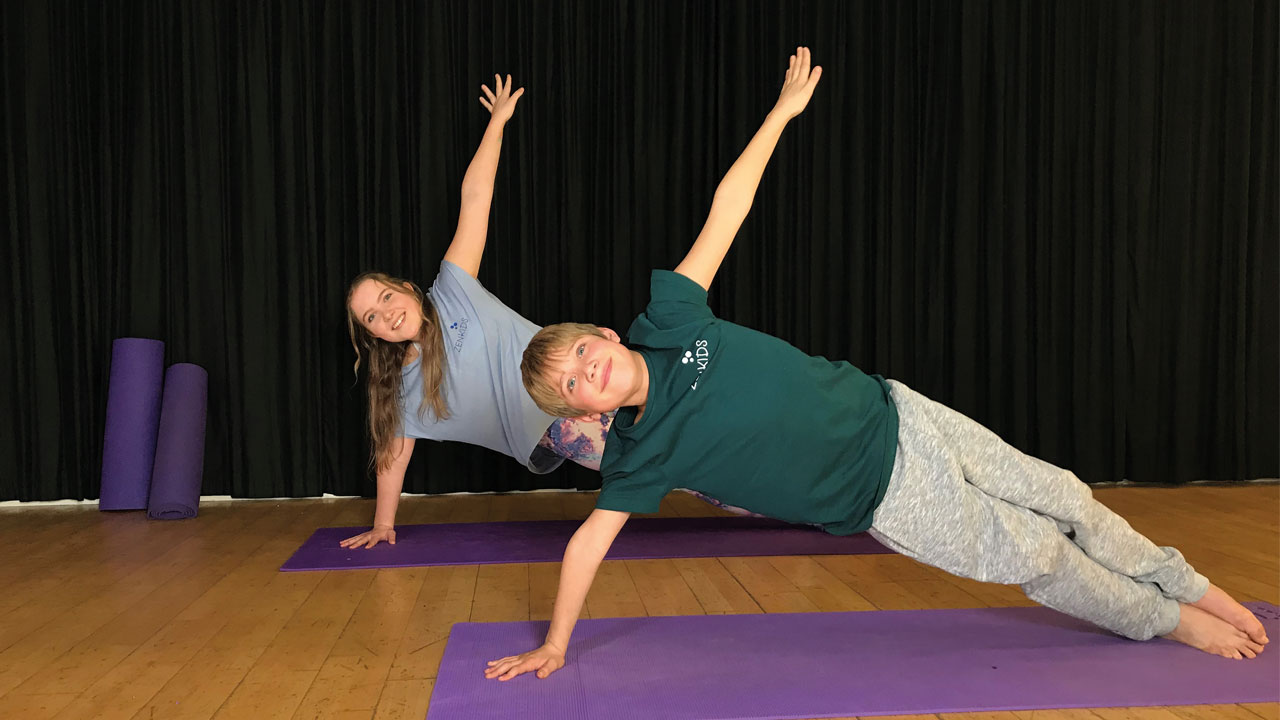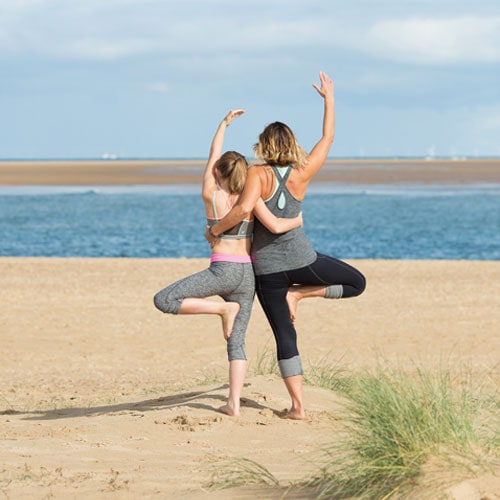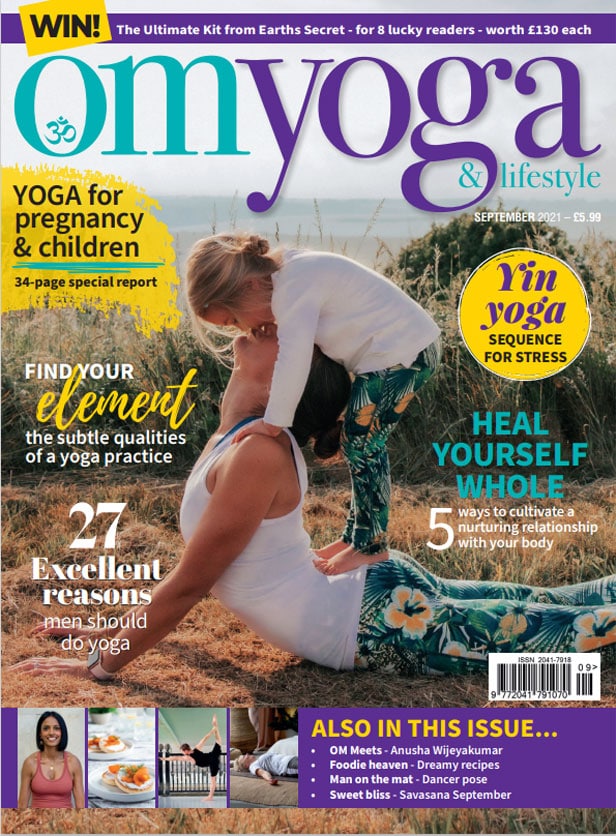
How to engage teenagers in yoga
13 practical tools to help teenagers benefit from yoga. By Jackie Heffer-Cooke
As we know, yoga is fun and makes you feel great, but it is also about discipline, self-control and learning how to respond to discomfort or tough times. Being a mum of teens and a trainer in teen yoga I know kids have these reserves but need great encouragement to dig deep and source them.
Tuning into teen yoga, means tuning into teens, that’s the fun of it, so get creative with lesson plans and think outside that adult yoga box!
Using quotes, songs and poems
This is often my starting point when I am lesson planning for a group of teens. You can use quotes from inspiring yogis, artists, influential thinkers, singers, poets, philosophers. How about tuning into the wisdom of contemporary poets like Kate Tempest, introducing human-rights inspirers like Rosa Parks, or work an ecological connection theme by quoting some Greta Thunberg?
Teamwork is dreamwork
Partner or group work is great yoga for teens. Just by encouraging a pairing or a team you are breaking down boundaries and encouraging community, collaboration, confidence, and fun! Practice simple acro-yoga, supported trees, chains of warrior threes or even human mandalas! A great way to promote and support understanding and bond through practice.
Get outdoors
There is never anything better than feeling the breeze in your hair and sand or grass under your feet when doing yoga. Bring senses alive by tuning into the sounds of birds, waves, streams or bring awareness to the body with the temperature of the air or movement of the wind and encourage connection with the outdoor prana.
Inversions
The teenage years are when we struggle the most with the will to let go of the ‘inner child’ but still with the desire to hang on to it! Inversions encourage this sense of fun. Inversions can be challenging, yet they also encourage a sense of personal achievement and control over our own bodies – something much needed during the teen years. Downward facing dog, clown, crow, shoulderstand and headstand are all great challenges when they are taught safely and with encouragement of ease.
Balances
Balance can be a challenge when there is so much thought whizzing through the mind. Balance brings calm, encourages steady, aligns stability – all the attributes teenagers need, but can be lacking in their biological and psychological fluctuating minds. Tree, dancer, eagle, warrior three...these are all going to encourage increased focus, stability, strength, self-control, and self-awareness. A great way to build useful, productive neural pathways for a calmer more positive mind-set.
Checking in
Teach your teens how important it is to check-in throughout the day on how they are doing and to notice shifts and changes; it is an invaluable skill. Humans are often under the illusion that we are fixed beings, and that once we make up our mind about something it must be rigid, unchanging. It gets us into all kinds of problems. The truth is we are fluid, changing beings. Encourage your teens to learn how to observe this as it happens, to not judge it, but to befriend it.
Breathwork
When we slow our heart rate down by using deep breathing, physiologically our heart rate slows, our breathing deepens, and healthy, happy endorphins are sent into our bodies promoting good health and a calm state of mind. Breathwork is great for exam stress too! Practice noticing and steadying the breath, take gentle control, breathing in, pause, breathing out, pause. Commit to riding the breath with full focus.
Savasana and yoga nidra
Encourage a mindful, single-focused practice. Encourage your teen yogis to be aware of their body on the mat, bring them to a flowing yoga nidra, or use the senses as focus by playing a piece of music and ask them to bring awareness back to it whenever their mind drifts off. Ask them to notice how often the mind flickers here and there, and without judgement, just encourage them back to the practice, mindfully learning how to take control of thoughts.
Meditation
Encourage your teens to observe the tugging, nagging, emotional thoughts, to notice where they came from, watch them, and release them. Ask them to see thoughts for what they are, someone else’s expectations, exam pressure, envy, fear. Ask them to realise they are not ‘tied’ to them and simply observe them, then cut the ties, release the thoughts and experience the freedom that brings.
Self-kindness
Sometimes when we are really being bothered by a situation we may be in, it is a really good idea to look at it as if you were your own friend. If your friend made a mistake and they felt sad, or ashamed, or guilty and explained to you how they felt, would you be horrible to them? Would you punish them? No. You would support them, ‘hold’ them, comfort them. Once we can learn to treat ourselves in the same way we treat our friends, our own inner space becomes a happier place to be and we can be friends with the most important person of all, with our self.
You can book Jackie Heffer-Cooke to train school teachers in ‘yoga and mindfulness for teenagers’ with zenkids.co
If you are a parent, school worker, youth worker, health worker, yogi or bodyworker you can train in ‘kids and teen yoga’ with her yoga teacher training school ZenMuma and ZenKids: zenmuma.co.uk





